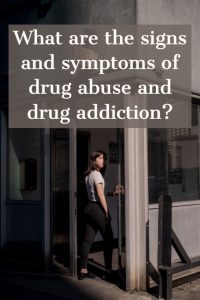Addiction is very complicated
Humans are designed as a moderate life form. They are easily hooked on activities or substances that they sub-consciously think is helping them but in fact, it will be damaging their physical and mental health. This addiction on anything is harmful and can lead to dire consequences and the worst of all is narcotic addiction. Whether it is in a very attractive cannabis edible packaging, in the form of a cigarette or worst of all cocaine and heroin, addiction is nothing to take lightly.
People around us are suffering from this plague every single day and it is our responsibility to help those poor souls but the first step is recognizing the signs of addiction to get help for yourself or guiding someone you care about to rehab. For this reason, it is critical to have an understanding of the signs of addiction.
There are behavioral, physical, and psychological aspects of addiction described ahead: –
Behavioral Signs
Behavioral signs mainly involve a person’s daily interactions with the world whereas physical signs relate to the body’s display of side effects due to the presence of drugs in the system. Behavioral signs include:
Obsessive thoughts and Actions: Acquiring and using the drug become the main priorities of life while all or most other obligations including work, family, or school are sidelined.

Disregard of Harm Caused: Although the drug abuse is causing physical and mental distress to the individual and their loved ones, the person struggling with addiction continues using drugs or alcohol
Loss of Control: Even in the face of wanting to stop or reduce their drug use, the person cannot do so.
Denial of Addiction or Hiding drug use: When confronted, the person battling addiction will deny or downplay their drug use. To avoid having to explain themselves to others, the person may do drugs in secret. Drug abuse cannot remain hidden for long. Its impact is too dramatic, and the person using drugs can spiral out of control fast. Changes in behavior, neglecting responsibilities, exhausting financial resources, and engaging in criminal conduct are some of the most obvious signals of a drug problem. Family members loved ones, and coworkers are usually in the best position to recognize a drug problem as they are familiar with the person’s behavior and habits.
Physical Signs of Addiction
Physical signs of addiction are mostly side effects of use, due to an overdose or as a result of quitting too quickly when the body is not ready to. It can be very difficult for someone to pinpoint the cause of the physical signs, but severe effects will require immediate medical treatment. Also, it is important to understand that withdrawal symptoms arise when the body adjusts to the absence of familiar quantities of a drug. It is a natural process, but withdrawal can be dangerous.
General physical signs of addiction include:
- Enlarged or small pupils.
- Sudden weight loss or gain.
- Bloodshot eyes.
- Insomnia.
- Unusual body odors.
- Poor physical coordination.
- Looking unkempt.
- Slurred speech.
Signs of overdose include:
- Drowsiness or trouble walking.
- Agitation.
- Aggression or violent behavior.
- Difficulty breathing.
- Nausea and vomiting.
- Hallucinations.
- Delusions.
- Loss of consciousness.
Withdrawal signs include:
- Shakiness, trembling, and jumpiness.
- Loss of appetite.
- Nausea and vomiting.
- Depression.
- Insomnia and fatigue.
- Headaches and fever.
- Confusion and hallucinations.
- Seizures.

Psychological Symptoms of Addiction
Symptoms of addiction that cause mental disorders to include the following: –
An inability to stop using: In many cases, such as a dependence on nicotine, alcohol, or other substances, a person will have made at least one serious but unsuccessful attempt to give up. This might also be physiological, as some substances, such as heroin, are chemically addictive and cause withdrawal symptoms if a person stops taking them.
Use and abuse of substances continue despite health problems: The individual continues regularly taking the substance, even though they have developed related illnesses. For example, a smoker may continue smoking after the development of a lung or heart disease. They may or may not be aware of the health impact of the substance or behavior.
Dealing with problems: A person with addiction commonly feels the need to take the drug or carry out the behavior to deal with their problems.
Obsession: A person may become obsessed with a substance, spending more and more time and energy finding ways of getting their substance, and in some cases how they can use it.
Taking an initial large dose: This is common with alcohol use disorder. The individual may rapidly consume large quantities of alcohol in order to feel the effects and feel good.
Taking Action When Your Loved One has an Addiction
First, get help for yourself first. If you are upset or irrational, it’s going to be difficult to help another person. Seek private counseling or attend a support group. Once, you’re on fit emotional ground, remember that addiction is a disease. It can be treated. Second, educated yourself on the addiction and find a trustworthy resource to guide you to the solution. Finally, when you find the solution, present it to your loved one and detach yourself. You can’t force someone to do something they don’t want to.
